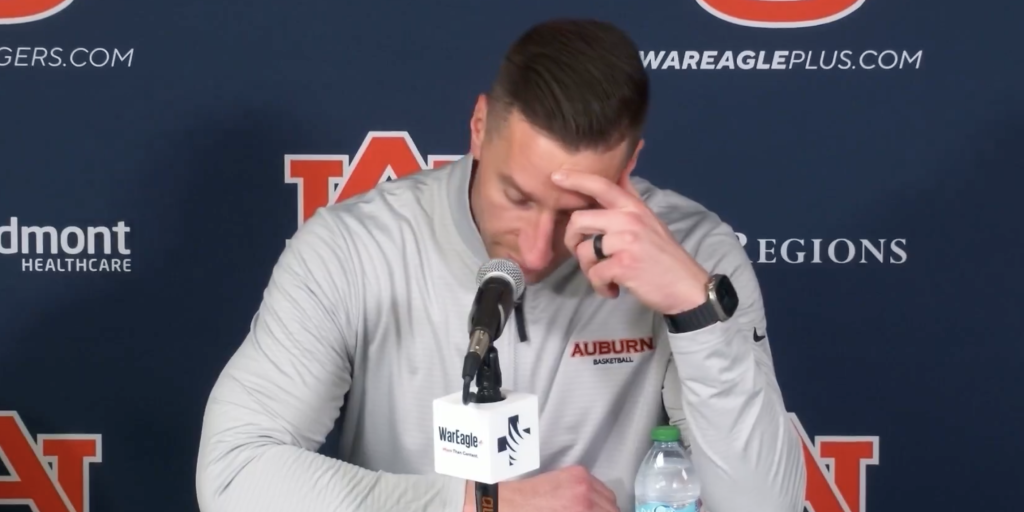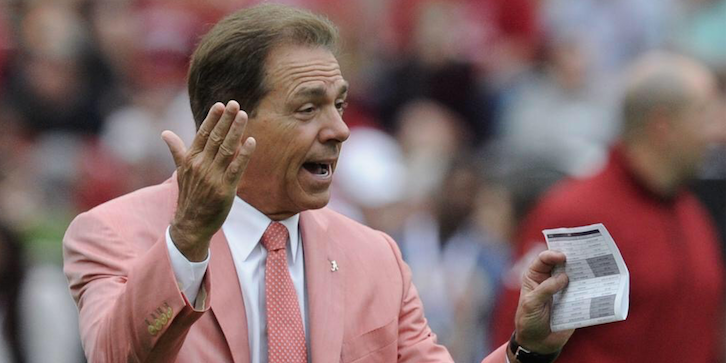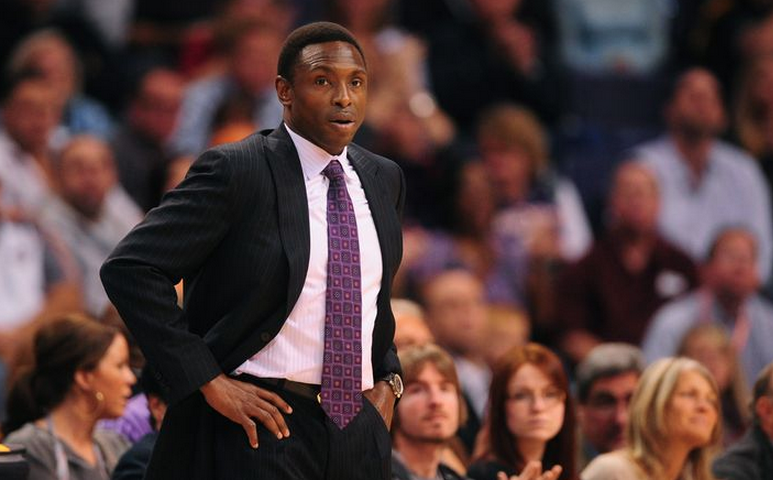
TUSCALOOSA, Ala.–While both Alabama and Auburn have earned their reputation for being strong running teams, this year’s Iron Bowl may be decided through the air.
Alabama’s passing game is on a torrid pace under new offensive coordinator Lane Kiffin and quarterback Blake Sims, and should be primed for a big weekend against an Auburn defense that allows 232 passing yards per game.
Alabama wide receiver Amari Cooper stands out as a possible difference maker, with his record-breaking season of 90 receptions for 1,349 yards and 11 touchdowns. He is third in the nation in receiving yards and has been named as one of three finalists for the Biletnikoff Award that goes to the nation’s top receiver.
Auburn head coach Gus Malzahn said Cooper may be the best playmaker in college football and is an impossible player to mimic in practice.
“You can put a jersey on somebody who has the same number, but to simulate one of the best players in college football, that’s probably not realistic,” Malzahn said. “You do the best you can.”
Alabama could be without two members of its passing attack, though, with tight end Brian Vogler and wide receiver ArDarius Stewart both “very questionable” for the game after stretching knee ligaments against Western Carolina. But Alabama has other receivers and tight ends ready if needed.
On the other side of the field, Auburn has two of its own star wideouts — Sammie Coates and Duke Williams — who will present a constant challenge to Alabama’s secondary. Williams leads the Tigers in receiving with 38 catches for 609 yards and five touchdowns and should return against Alabama after missing two straight games with a knee sprain. Coates has 511 yards receiving on 25 catches with two touchdowns.
Alabama has faced large, dynamic receivers already this season in Ole Miss’ Laquon Treadwell and Miss. State’s De’Runnya Wilson. Auburn’s duo is very similar, both listed at 6-foot-2 and possessing the physicality needed to create separation from smaller cornerbacks. Saban noted that they’re two of the best in the country when it comes to catch radius.
“It’s going to be a challenge for our guys,” Saban said. “They’re going to have to use great technique, really good eye control in terms of what they’re doing, but it’s got to be a team thing.”
Going against these two receivers will be Alabama’s starting cornerbacks Eddie Jackson and Cyrus Jones, who are listed at 6-foot and 5-foot-10, respectively.
Jones, a converted wide receiver who only started four games in 2013, has stepped up this season and become a reliable player. Through 11 games, Jones has 35 total tackles, 11 passes defensed, two forced fumbles and two interceptions, including one critical pick against Miss. State quarterback Dak Prescott in the end zone.
Jones prides himself on being physical and battling with these much larger receivers.
“You just can’t let them manhandle you,” Jones said. “You’ve got to be physical right back with them, especially if you’re a smaller guy such as myself.
“It’s just important to be in position at all times to kind of be ready to make a play when the ball’s in the air and not let them get on top of you down the field. It’s going to be a good challenge but I’m excited about it.”
With last season’s consecutive losses to Auburn and Oklahoma, the question of the offseason for Alabama was whether it could keep up with the proliferation of hurry-up, no-huddle offenses.
An improved secondary was crucial, and Alabama safeties Landon Collins and Nick Perry say the team is ready for Auburn’s high-tempo offense after spending countless hours preparing in practice.
Having a dual-threat quarterback like Sims has also helped the Crimson Tide prepare to defend mobile quarterbacks like Auburn’s Nick Marshall, who has the ability to extends plays by tucking and running or scrambling to buy a few more seconds for Williams and Coates to break open.
“We just got to come out, be honest and not get too excited about [Marshall] running or him throwing it,” Jones said. “We’ve just got to play our keys and play the defense like we’ve been taught to.”
Both Auburn and Alabama are known for their run games, and both will most likely rely on them for the majority of the game. But explosive plays in the passing game, which both teams are capable of doing, could be the deciding factor for one team or the other.









